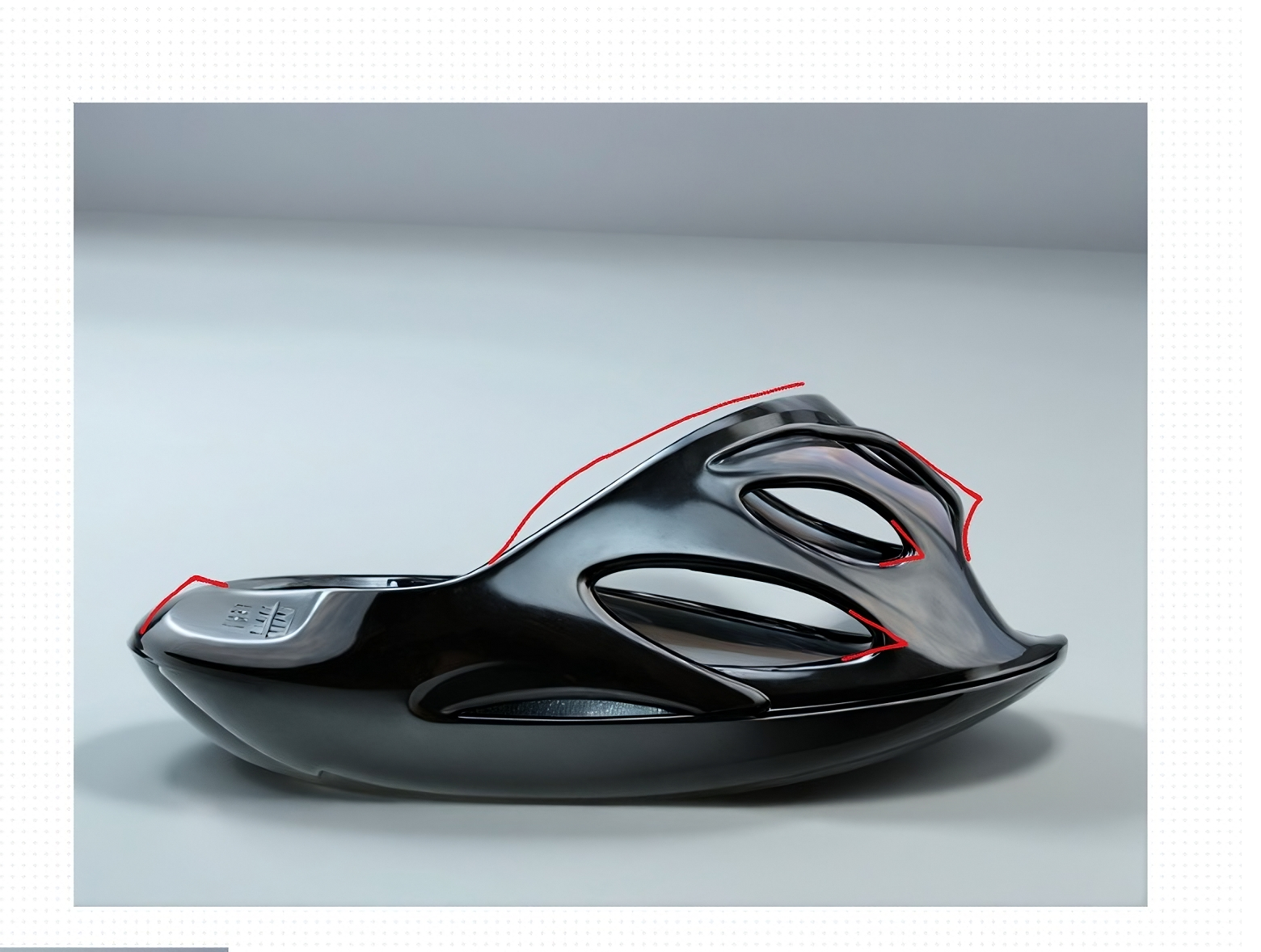Follow us on Google News (click on ☆)

The footwear industry is undergoing a transformation, and Syntilay is a prime example. Designed by artificial intelligence and manufactured using 3D printing, this sandal reflects a shift towards greater personalization and sustainability. Backed by Joe Foster, co-founder of Reebok, it aims to redefine certain aspects of fashion.
A bold creation
Syntilay is the result of an innovative process. The AI Midjourney generated the initial shape, which was then refined by an artist before Vizcom AI transformed it into a precise 3D model.
The sandal's patterns are created by generative algorithms, giving each pair a unique touch. This method allows for advanced customization, with several color and design options.
3D printing for made-to-measure
3D printing plays a central role in the manufacturing of Syntilay. Thanks to the use of thermoplastic polyurethane, a material that is both robust and flexible, each pair is produced on demand. This technique helps reduce waste and speeds up production.
A foot scan, done via smartphone, ensures a precise fit tailored to the user's morphology. Even if there are differences between the two feet, Syntilay provides an adjustment that takes this into account.
A rapidly evolving market
The footwear market, estimated at nearly $100 billion in the United States, is constantly evolving. Syntilay targets a young clientele, attracted by new technologies. Priced at $149.99, it positions itself in the high-end segment.
The brand's strategy relies on limited initial production, creating an exclusivity effect. Future collaborations with content creators or other brands could enhance its visibility.
An inevitable comparison
Crocs and Yeezys have made their mark on the industry with their unconventional designs and commercial success. Although Syntilay takes a different approach in its design, it could follow a similar trajectory. Its use of technology and personalization makes it an attractive option for an innovation-seeking audience.
The future of personalization
Syntilay illustrates a growing trend: personalization. By allowing each user to design a unique pair, it meets a rising demand for tailored products. This approach could encourage other brands to explore the possibilities offered by AI and 3D printing.